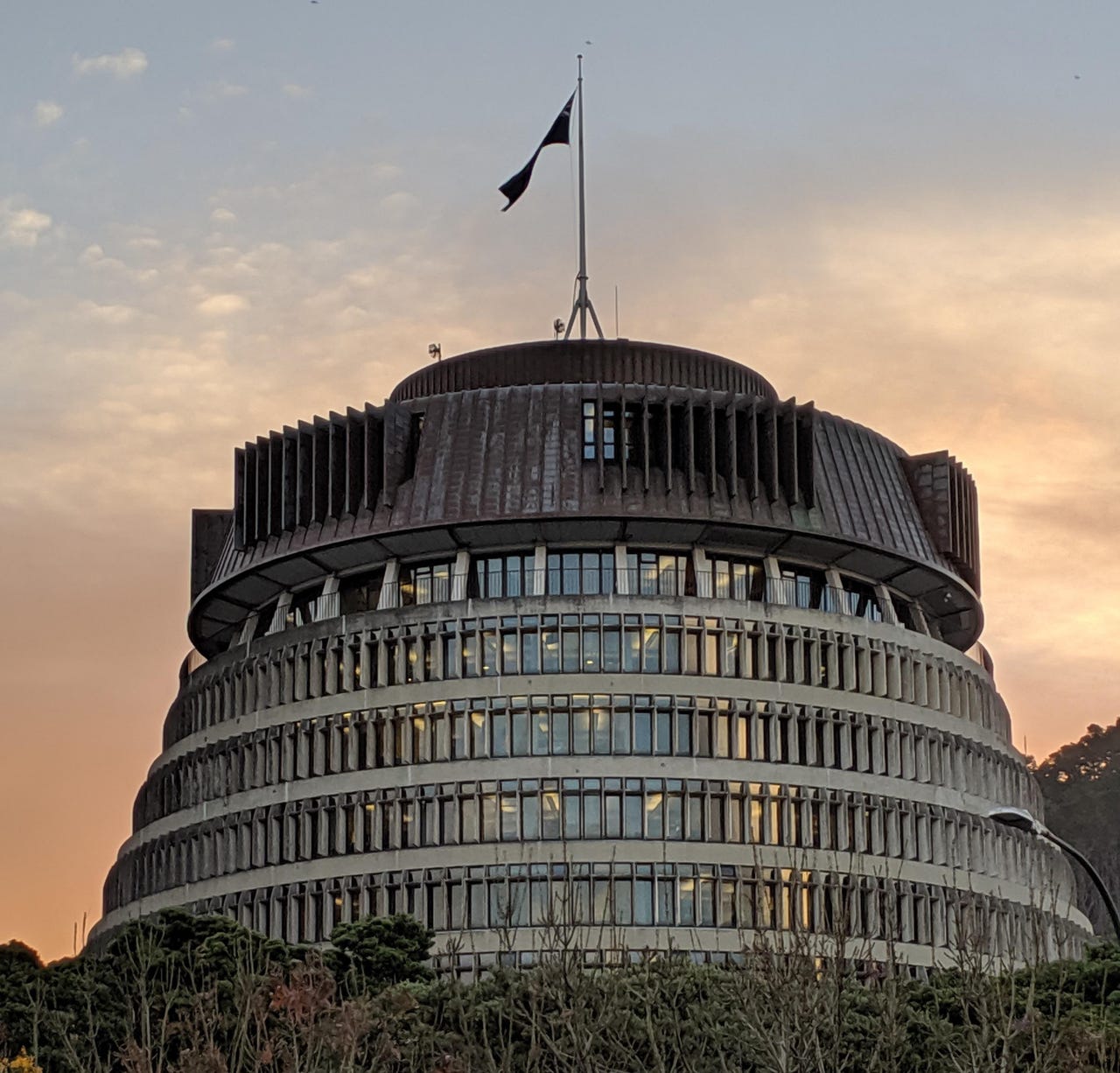New Zealand launches independent Digital Council to advise government

New Zealand 'Beehive'
The New Zealand government has announced the launch of its Digital Council, which was enacted to advise government on how to maximise the societal benefits of digital and data-driven technologies.
The Digital Council will function as an independent group that acts "a bridge and connector between the government, the technology industry, and communities across New Zealand," the New Zealand government said.
The Digital Council is headed by Mitchell Pham, chief sales and marketing officer of Augen Software, and includes six other members who were chosen based on their technical expertise and contributions to the New Zealand community. Among the members are Kendall Flutey, CEO of edtech startup Banqer, and Colin Gavaghan, the University of Otago's New Zealand Law Foundation Chair in Law and Emerging Technologies.
"We've brought together an impressive mix of people who can help navigate the fast-moving digital and data landscape through a specific New Zealand focus," said Minister for Government Digital Services Kris Faafoi, who created the group alongside Minister of Statistics James Shaw.
"We want to understand the impact of technological change from a uniquely New Zealand perspective, including te ao Maori," Faafoi added.
"The Digital Council will also help identify gaps in accessing and using technology, how it can benefit societies and our economy, assist our role in the Pacific, and help overcome our distance from major trading markets."
The Digital Council takes over from the Digital Economy and Digital Inclusion Ministerial Advisory Group (DEDIMAG), which concluded its work program at the end of last year.
While the DEDIMAG was set up to explore a more industry-focused range of issues, the Digital Council is expected to help government explore the wider impacts of technology on society.
The focus areas of the Digital Council will include digital inclusion; nurturing digital trust and confidence; balancing data use and accessibility with safeguarding and privacy; government service innovation and digital development; enhancing the positive use of data to realise social benefit; the role of technology in fostering greater social inclusion and community resilience; and the impact of specific technologies, such as artificial intelligence (AI) and algorithms, on aspects of New Zealand society.
The AI Forum of New Zealand supported the move, saying the creation of the Digital Council will allow the government to tackle big topics, such as AI, across the New Zealand tech ecosystem.
"AI will have a significant positive impact, not only on New Zealand's trade and commerce, but on the fundamental ways we live and work. It is vital that we take every opportunity to shape and secure our future as early as possible," AI Forum of New Zealand executive director Emma Naji said.
The Digital Council will provide a detailed work program with deadlines, milestones, and success measures by 31 March 2020.
Last month, New Zealand wrapped up negotiations with Singapore and Chile to enter into a digital economy pact that covers various components, including digital identities, data flow, and AI. The agreement is aimed at facilitating greater digital connectivity between the countries and establish multilateral rules on digital trade at the World Trade Organisation.
Related Coverage
NZ Commerce Commission warns Vodafone for misleading customers
It considered the telco had 'likely' breached the Fair Trading Act.
Wisk and New Zealand Government partner to trial self-flying taxi
It will build on tests that Wisk has been conducting since 2017.
Singapore, New Zealand, and Chile inch towards digital economy pact
Having wrapped up negotiations for the Digital Economy Partnership Agreement, which encompasses various components including digital identities, artificial intelligence, and digital trade, the three nations will now work to formally sign the agreement into force.
New Zealand 100Mbps fibre plans delivering 99% of promised speeds
The regulator is worried that Fibre Max speeds are only hitting 72% of advertised speeds, or around 650Mbps. Meanwhile, Australia weeps.
NZ to auction early access to 5G spectrum
Kiwi telcos to get access around two years' worth of spectrum before longer-term access begins in November 2022.
NZ utility aims to cut power outage time using IBM's AI from The Weather Company (TechRepublic)
Using IBM's The Weather Company, Vector uses AI and data analytics to predict and preempt downed poles and lines.
